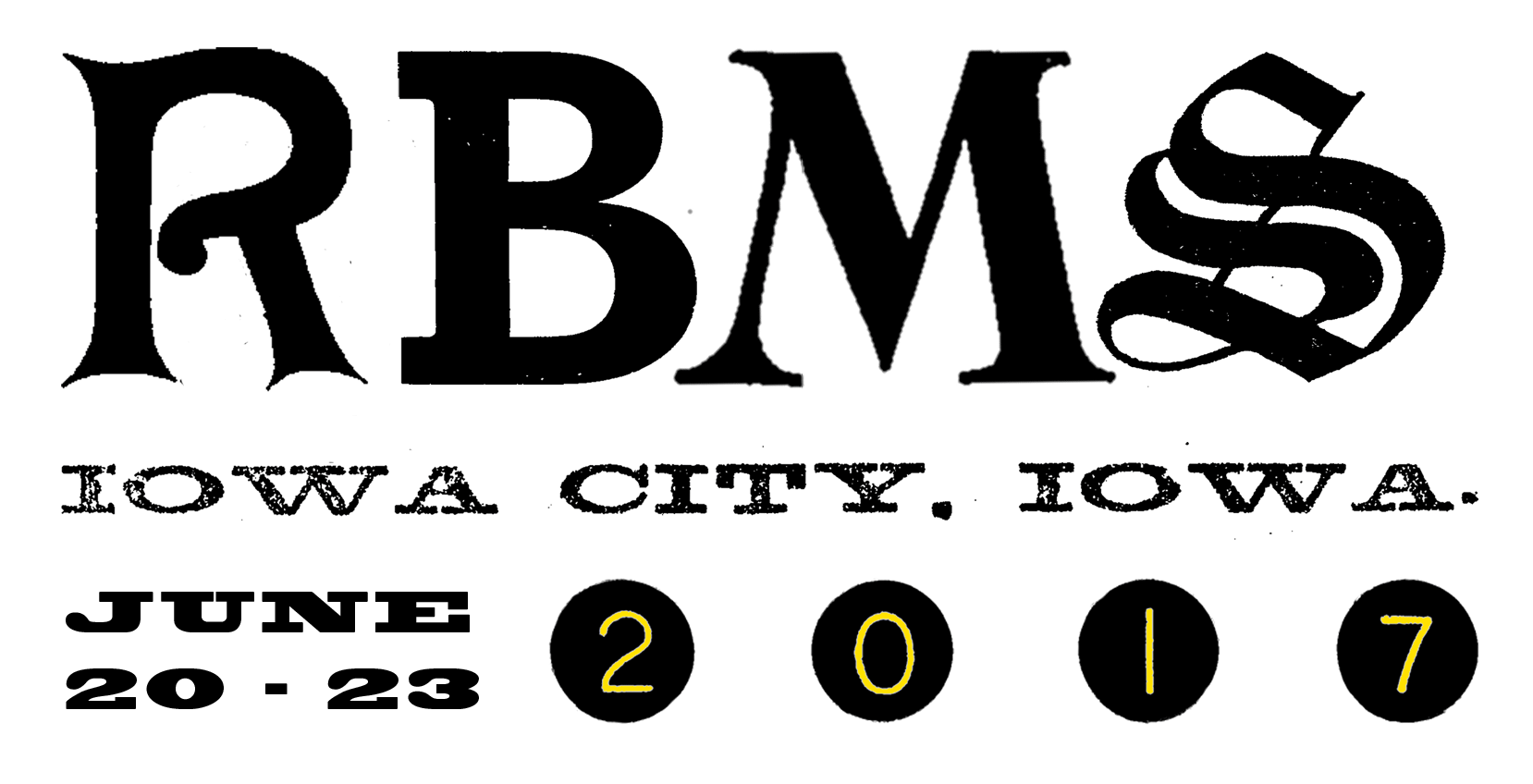Participatory Session – “I’m Not Here to Teach You about My Race”: Stories of Recent Recruits
Last summer, several of us in the 2016 cohort of the IMLS-RBS Fellowship for Program for Early-Career Librarians attended Rare Book School in Virginia during the same very hot week. Having the chance to get to know each other a little bit, we began almost immediately to talk about how we might do something meaningful with the opportunity we had each been given. Based on our day-to-day experiences dealing with diversity issues at our home institutions, RBMS, and Rare Book School, we felt that there was a need to provide more space for dialogue about how these recruitment programs influence our work as individuals and the profession as a whole.
Given the “unbearable whiteness of our profession” diversity initiatives for special collections libraries certainly seem like a step in the right direction. But what’s the next step? What happens after the fellowship, when the residency ends, or the scholarship is spent? What are the long-term effects of such programs—particularly when employment opportunities are are so scarce and funding streams are constantly threatened?
Many of us had positive experiences at RBS and RBMS, but we wanted to create a forum where other voices could be heard, where critical feedback could be shared honestly, and where we could just talk about the real impact of these things on our professional pursuits and aspirations in the field of special collections.
So we invite you to join us for a participant-driven lunchtime discussion on Thursday, June 22, 12:30-1:30pm at The Mill Restaurant. This participatory session—or “topical lunch”—will bring together voices new and experienced, to share stories about the triumphs and obstacles faced by early-career professionals seeking to diversify the world of archives, manuscripts, and rare books. Our goal is to engage in candid conversations about how recruitment and career enhancement programs are addressing the lack of diversity in the field, whether this has any effect on retention, what other problems remain, and maybe even some ideas about how to move forward.
We created a survey to gather stories (anonymously) that can serve as the foundation for our conversation, and to engage a wider audience than might be able to attend the conference session in person. Here are a few of the responses that have been shared so far:
- “One of the obstacles that continue[s] to exist is the lack of diversity white colleagues have in their everyday life. I’m not here to teach you about my race… that is not in the job description. Make friends, have lunch, talk to someone who doesn’t look like you and genuinely learn about them. Don’t expect your colleagues of color to be your only connection to diversity.”
- “I often find that my older colleagues underestimate me until I prove them wrong. New patrons … treat me differently over the phone/email than they do in person. I have authority over the phone, but once they meet me in person I am, ‘Honey’, ‘Sweetie’, and ‘You’re so young—wow’.”
- “I think that any non-white face in an academic library understands that it is hard not to feel like a token. I resent my colleagues (supervisors/fellow interns/classmates) assuming that, because of how I look, I have a special interest in diversity issues (even though I do!) or ethnic studies…”
- “In my first position, which was a diversity placement and eventually turned into a permanent position that I was selected for after a national search, a few people made comments that my selection for that position was only because I was “diverse.” Having started off in a diversity program … was helpful as I faced some [obstacles] during my first four years in the field and I think, had I not known about them and had discussions about them beforehand I may not have stayed…”
The survey is still open, and we will be collecting responses until the RBMS 2017 Conference. We hope that you will join the conversation, either through the survey or in person in Iowa City. We have also compiled a reading list that contains both current articles and foundational literature on diversity issues in LIS, demographics of the profession(s), trends in LIS and ‘rare books’ education, collection development, and debates about the neutrality of archival principles and practice. These readings may help provide a framework for our discussion, but are totally optional. Our lunchtime session might fit within the broader discourse about diversity happening in the library and archives professions—or begin a new kind of conversation. We are interested in the subjective experiences of the people working in the trenches of history and cultural heritage. Let’s alter the problematic status quo of our profession. Tell us your story!
–Alexsandra Mitchell,
Jose Guerrero,
Maria Victoria Fernandez,
Diane Dias de Fazio,
Alyssa Carver
